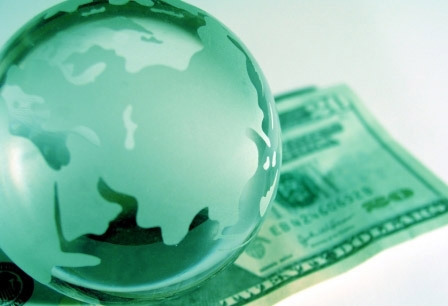Regional integration needed for developing world: Economists
 Geneva - Warning of political unrest and social instability owing to the economic crisis, two economists said Thursday that some developing nations would need to built better regional cooperation regimes to ensure their futures.
Geneva - Warning of political unrest and social instability owing to the economic crisis, two economists said Thursday that some developing nations would need to built better regional cooperation regimes to ensure their futures.
"There is a need for more regional integration, because we are seeing low intra-African trade," economist Mustapha Sadni Jallab said.
While West Africa had an alliance between several countries, he said there was a need to expand this to cover more of the continent.
By doing so, they would reduce their reliance on the West for their exports, enabling them to develop better production models suiting domestic needs.
He noted that the only area in the developing and emerging markets with significant regional trade was south-eastern Asia.
Jallab co-authored with Hakim Ben Hammouda the new book "La Crise" which focuses on the impact the economic crisis is having on the developing world.
"Trade is one of the ways out of a crisis, but they have a huge potential for growth at internal levels," said Ben Hammouda.
Some economists had expected the financial crisis to pass over the developing world, but the two authors argue that it has in fact hit developing countries hardest, in part because of their dependency on exports for growth and the lack of reserves for stimulus packages.
With global trade expected to fall this year by 9 per cent, according to the World Trade Organization, exporting their way to riches would be unlikely in 2009.
Ben Hammouda, who has worked for the WTO, also pointed out that the economic crisis for much of the developing world actually began long before it hit industrialized nations.
"The crisis really started with the food crisis," he said, which began in 2007 as prices for basic goods soared, leaving the poor even more destitute while driving others into poverty.
Some particularly poor nations without oil reserves, might appreciate the dramatic drops in the price of fuel, but at the same time also suffer the decrease in value of their own commodities, such as cotton, cocoa and coffee.
This means the developing world is making less money on fewer exports.
Furthermore, the impact of the oil decline on some emerging markets, particularly in the Gulf, have been severe, affecting economies that had invested in the poorest nations.
These emerging countries, such as the United Arab Emirates, also took losses on their sovereign wealth funds and investments in the housing sector. When they liberalized their markets they also made themselves more exposed to the financial crisis.
Their saving grace, though, were the large reserves they were able to store up. Also, internal cooperation in the Gulf has allowed, for example, Abu Dhabi to bailout Dubai by buying up its debt.
For countries, though, who have relied on high oil prices to fund their social programmes and subsidies, the times are changing.
"They must invest in infrastructure, but also in education, growth for the future. They need skills," Jallab said.
Otherwise, the prospect of political and social unrest looms ever closer, particularly in north and sub-Saharan Africa.
Already, the economists warned, Africa was seeing sudden regime change, such as the recent coup in Madagascar, which was connected to the state of the island nation's economy.(dpa)